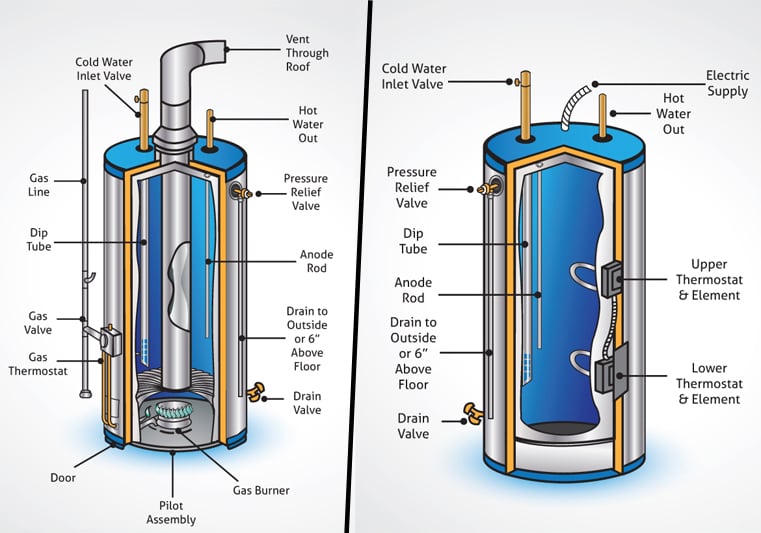Hot Water Smells Like Sulfur? Understanding Your Hot Water Heater Issues
There’s nothing quite like stepping into a warm shower after a long day, but what if that soothing experience comes with an unpleasant surprise? If your hot water smells like sulfur, it’s more than just an annoyance—it can indicate underlying issues with your hot water heater. This problem is not uncommon, and understanding its causes and solutions can help you restore your peace of mind.

Identifying the Source of Sulfur Smell
A sulfuric odor in hot water is generally characterized as a rotten egg smell. This scent is often associated with the presence of hydrogen sulfide gas (H2S) which can be produced in both well and municipal water systems. If you solely notice the smell when the hot water is running, it likely points to your hot water heater itself.
Common Causes of Sulfur Smell in Hot Water
Several factors could lead to the unpleasant odor emanating from your hot water heater:
-
Bacteria Growth: The most common reason for the sulfur smell is the growth of bacteria in the water heater. In particular, sulfate-reducing bacteria thrive in warm, stagnant water, producing hydrogen sulfide as they break down organic materials in the water. This bacteria commonly appears when the heater has not been turned on for an extended period.
-
Anode Rod Corrosion: Hot water heaters often come equipped with a sacrificial anode rod made of magnesium or aluminum. In some cases, when this rod deteriorates, it can react with the sulfates in the water and produce the distinctive sulfur smell. Replacing the anode rod may relieve the issue.
-
Water Source: For households using well water, the problem may stem from sulfate minerals naturally present in the groundwater. While harmless to health, these minerals can affect the smell and taste of the water, especially when heated.
-
Temperature Settings: Keeping your hot water heater set below 120°F can create an environment conducive to bacteria growth. Increasing the temperature can help eliminate some of these bacteria, but caution is advisable, as scalding can occur at higher temperatures.

Addressing the Problem
Once you identify the cause of the sulfur smell, addressing it is crucial. Here are some actionable steps to consider:
-
Flush the System: Performing a complete flush of your water heater can eliminate accumulated sediment and bacteria. This process typically involves draining the tank and replenishing it with fresh water.
-
Replace Anode Rod: If the anode rod is contributing to the problem, replacing it might be a practical solution. Check your local hardware store or plumbing supply for the appropriate replacement.
-
Water Treatment: If your water source contains high sulfate levels, consider investing in a water softening or filtration system. These systems can effectively reduce sulfur compounds and improve the overall taste and odor of your water.
-
Professional Inspection: If the issue persists after these measures, it’s advisable to consult with a professional plumber. They can provide a thorough inspection of your system to identify any additional problems.
Preventive Measures
To prevent future occurrences, regular maintenance of your hot water heater is essential. This includes periodically flushing it, checking the anode rod, and making sure the temperature settings promote a healthy balance without excessive heat.

Being proactive can save you both time and money in the long run. A well-maintained hot water heater not only ensures comfortable showers but also preserves the quality of your water supply.
Final Notes
Experiencing a sulfur smell from your hot water heater can be unsettling, but knowing the causes and solutions equips you with the right approach to mitigate the issue. Regular maintenance and quick intervention can help you maintain a fresh and pleasant hot water supply, ensuring that your household remains comfortable and inviting. If you’re facing persistent challenges, don’t hesitate to reach out to professionals who can provide tailored solutions for your specific situation.



